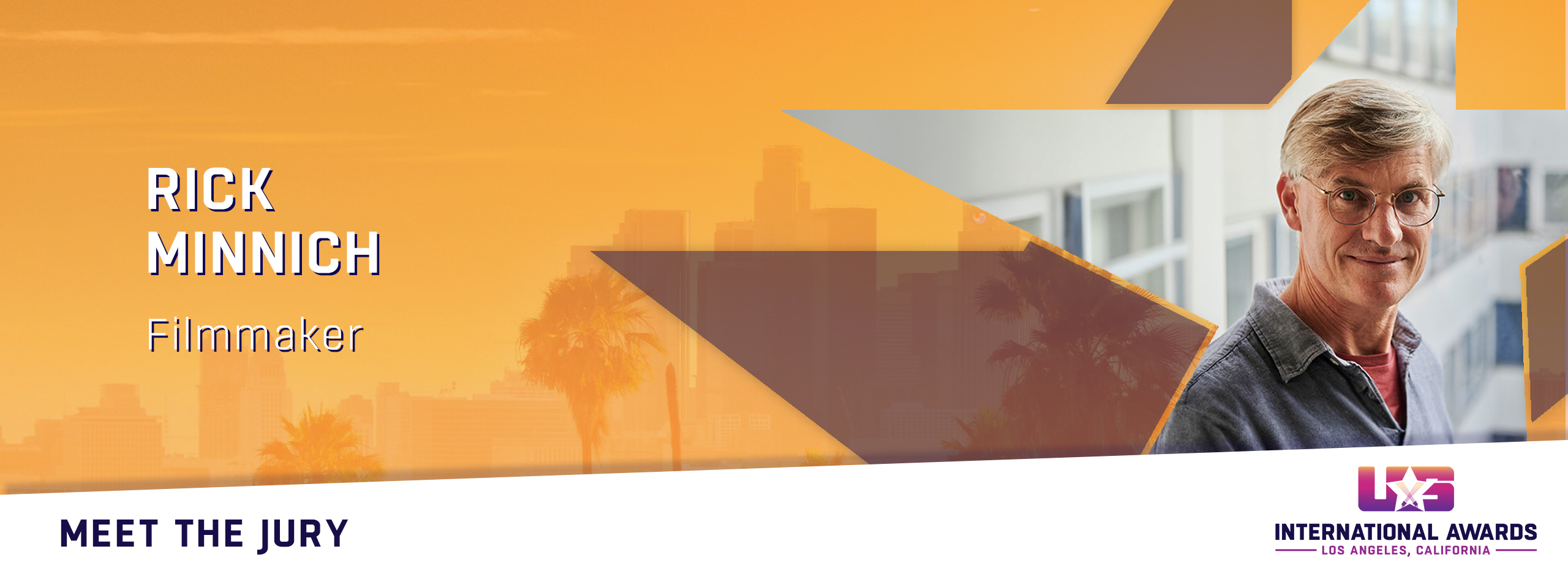
Today, we're excited to introduce filmmaker and educator Rick Minnich, whose work reflects a profound love for humanity and a keen eye for universal stories. Born and raised in the American West, Rick’s global perspective was shaped by living on both sides of the Iron Curtain before settling in Berlin shortly after the Wall fell. His films have covered diverse topics, from the mysteries of amnesia and untold WWII legacies to visionaries striving to connect distant worlds. As a juror for the 2025 US International Awards, Rick brings a wealth of experience.
We're thrilled to have you on the jury for the 2025 US International Awards. Throughout your career, you've encountered a remarkable variety of people and visualized their stories. Could you share what you enjoy most about your work?
Meeting those amazing and fascinating people who often also have big hearts.
What was the most challenging project you worked on so far?
My most challenging project so far was the personal documentary "Forgetting Dad" (2008) about my father's mysterious case of amnesia. It was difficult juggling my responsibilities as a son and brother with those as a director when filming with my family and opening wounds from the past.
What are you currently working on? And what else is planned for the upcoming time?
I am currently editing a documentary called "The Big Thaw" about four atmospheric scientists conducting fieldwork about the impact of thawing permafrost on weather patterns. I spent five weeks living and filming with them at the northernmost point of the United States – Utqiagvik, Alaska.
I am also busy promoting my most recent short documentary "The Presidents' Tailor" about the Holocaust survivor and legendary tailor to US presidents and celebrities Martin Greenfield.
Could you tell us about a project where you took a significant risk, such as filming in a challenging or unpredictable environment? How did that experience unfold, and what impact did the final piece have?
One recent project where I took a significant risk was traveling to Odesa, Ukraine, with the Berlin humanitarian aid organization Berlin Odesa Express to shoot a short video about their work delivering medical supplies and humanitarian aid to their partners in Odesa. It was risky traveling to a country at war, and we had to navigate air raid warnings, blackouts, and roadblocks, but ultimately the video turned out quite good and was a finalist in the Smiley Charity Film Awards and was nominated for the Geographical Better World Video Awards.
What does an award represent to you?
It's a nice bit of recognition which helps motivate me to continue on my filmmaking path, but nothing to get obsessed about. I don't make films to win awards; I make films to tell stories that hopefully reach a wide audience and touch their hearts and minds.
As a jury member, what are you looking for in a winning entry?
A winning entry should tell a story and shed light on some facets of the human condition.
Are there any tips for potential entrants? Production-wise and presentation-wise?
High production value is great, but making sure your film has a soul is even more important.